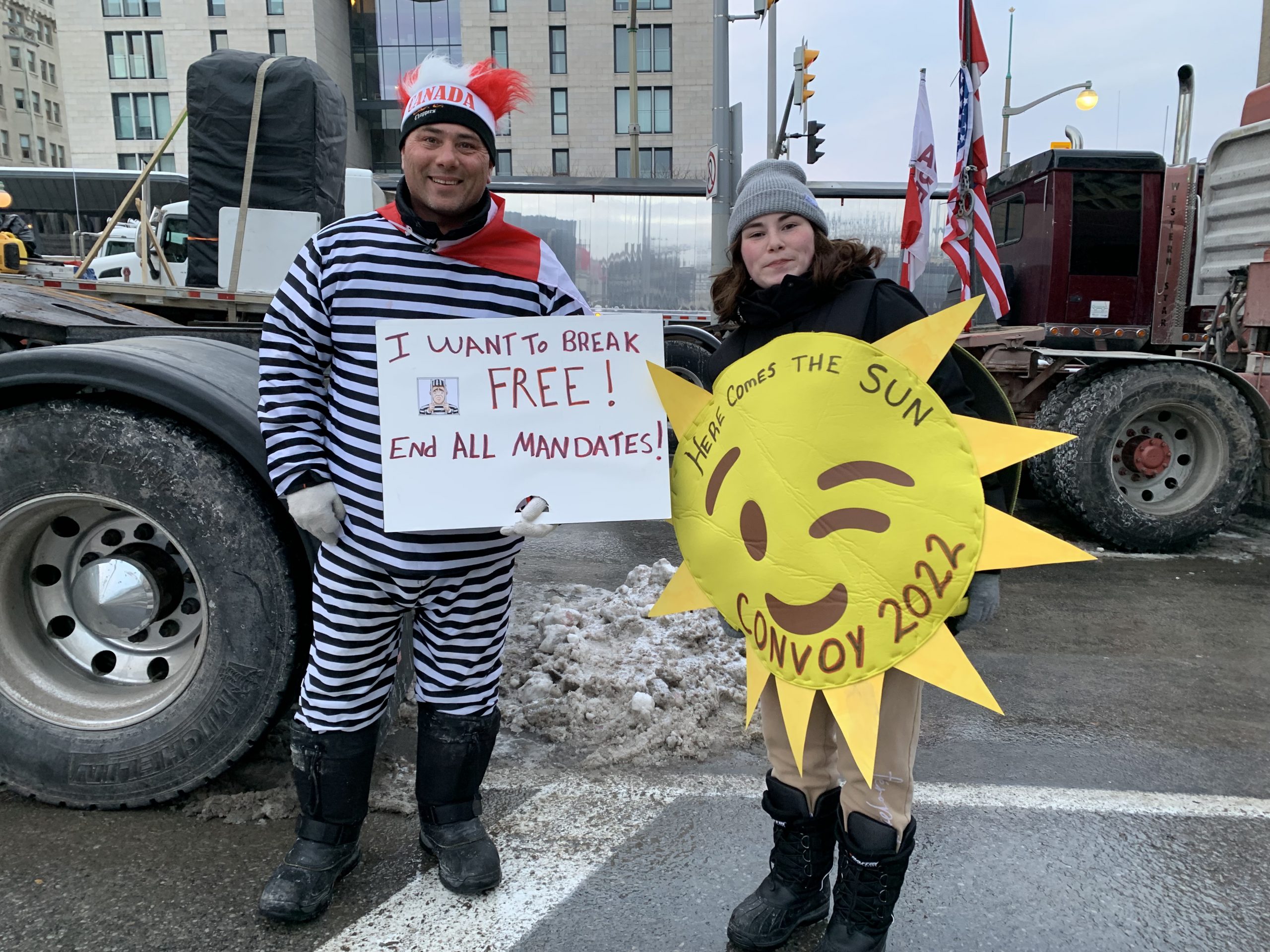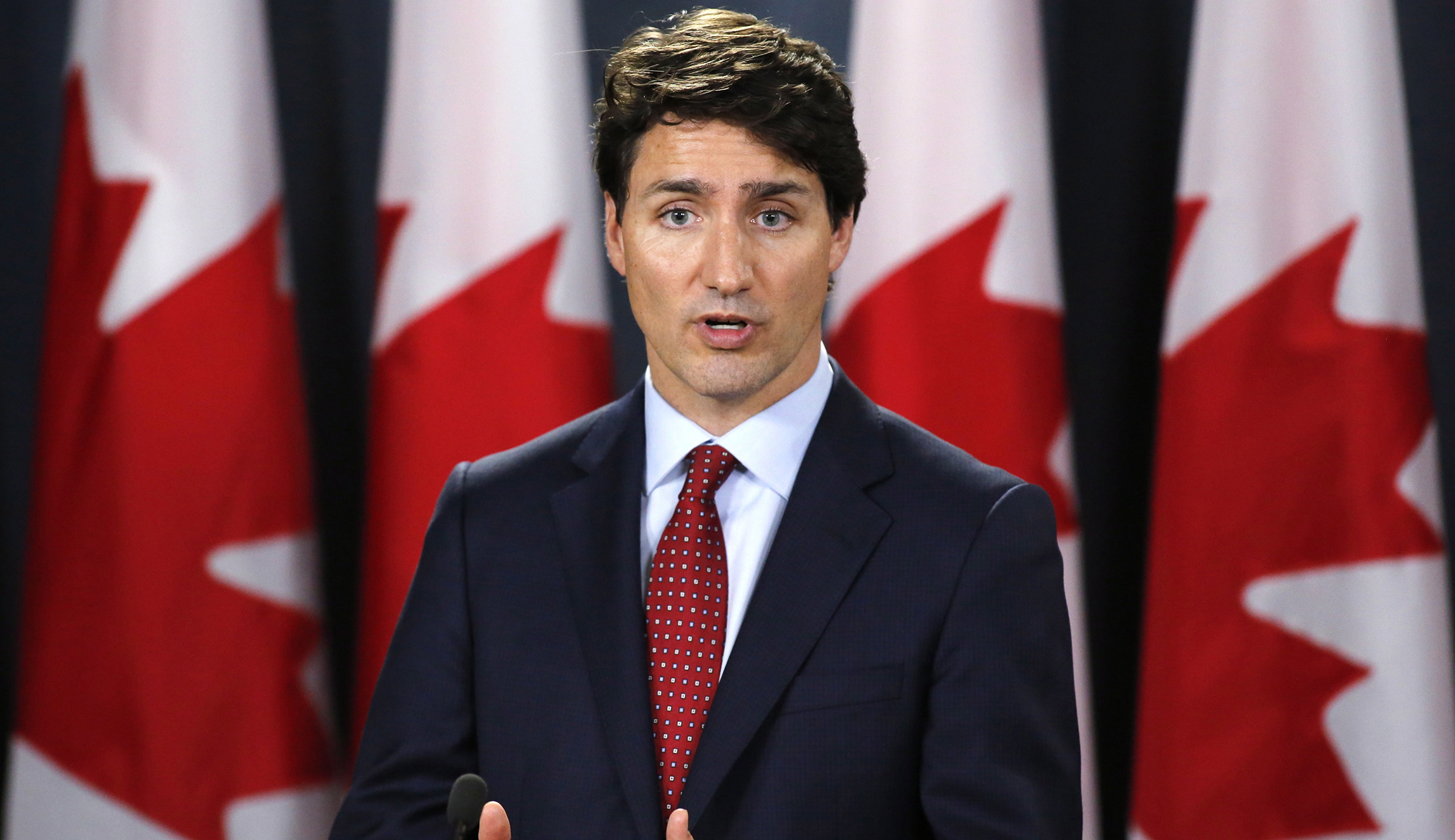OTTAWA, Ontario — Two organizers of the Freedom Convoy along with a dozen others have been arrested in downtown Ottawa, as authorities took their first major step to end the demonstrations that have stretched on for three weeks in Canada’s capital.
Tamara Lich and Chris Barber, two of the most vocal organizers of the protests, were led away in handcuffs late Thursday.
On Friday, police confirmed Barber, 46, of Swift Current, Saskatchewan, had been charged with counseling to commit the offense of mischief, counseling to commit the offense of disobeying a court order, and counseling to commit the offense of obstructing police.
Lich, 49, of Medicine Hat, Alberta, has been charged with counseling to commit the offense of mischief.
Both are due in court on Friday.
Dagny Pawlak, a spokeswoman for Freedom Convoy 2022, one of the main groups organizing the demonstrations, called the Lich’s arrest “absolutely baseless and a disgrace to any liberal democracy, although not a surprise.”

CANADIAN CIVIL RIGHTS GROUP SUES GOVERNMENT AFTER JUSTIN TRUDEAU INVOKES EMERGENCIES ACT
The arrests came after two written warnings and multiple verbal ones from Ottawa Interim Police Chief Steve Bell, who told protesters on Thursday, “It’s time to go.”
“Your time in our city has come to an end and you must leave,” he added.
Despite the warnings and threats of arrest, some demonstrations remained defiant on Friday, digging in and telling the Washington Examiner they had no plans to leave and instead will “hold the line.” Some, at an intersection near Wellington Street, began dancing and began waving red and white Canadian flags.
Though they have vowed to stay put, the Washington Examiner saw several tow trucks in the downtown core start to take away some vehicles. Most of the protesters that remained were the truckers who had been camped out in their spot in front of Parliament Hill for three weeks. The majority of others on the streets were police officers and journalists.
Promising a very different weekend from the last three, Bell said Thursday that police would take a much stronger approach to the demonstrations that began after a group of Canadian truckers and their supporters drove from Western Canada to Ottawa to challenge a regulation that requires truckers returning from the United States to show proof of vaccination. If the truckers are not fully vaccinated, they will be subjected to COVID-19 testing and quarantine requirements. Those same requirements exist on the U.S. side of the border.
Since the protests began, the message has widened to dissatisfaction with all government mandates involving COVID.
In the weeks since the truckers made their way to Ottawa, thousands of supporters have shown up, bringing the truckers fuel, supplies, hot meals, and in some cases even entertainment. Bouncy castles were blown up for the children, street hockey was played, speeches against the government were given, music was blasted, and multiple conga-lines were formed. At one point, a pig was roasted on the street, and a hot tub was installed.

But the mood changed this week after residents renewed their complaints, the chief of police resigned, and Prime Minister Justin Trudeau invoked the never-before-used Emergencies Act.
Trudeau, who has been the target of the protesters’ ire, has refused to meet with truckers. Instead, he’s mocked them, called them “a fringe minority,” and accused them of being racist, homophobic goons bent on creating havoc.
Trudeau has faced widespread resistance from his political rivals, members of his own party, as well as civil liberties groups who claim he went too far by invoking the Emergencies Act to end the largely peaceful protests in his country.
“Peaceful protesters who feed the homeless, shovel snow, pick up garbage, dance in the streets, play street hockey, wave Canadian flags, sing the national anthem, and set up bouncy castles for children do not ‘seriously endanger the lives, health, or safety of Canadians,’ nor are these peaceful activities ‘of such proportions or nature as to exceed the capacity or authority of a province to deal with it,’” said Jay Cameron, litigation director at the Justice Centre.

The Emergencies Act gives the government the power to go after Canadian residents, prohibit public assembly, as well as arrest them and freeze their assets. It also allowed them to take protesters’ trucks, cancel their insurance, and take other extreme measures to break up the demonstrations.
Even though the powers given to the government went into effect immediately, lawmakers have seven days to vote in favor of or against using the Emergencies Act for 30 days.
CLICK HERE FOR MORE FROM THE WASHINGTON EXAMINER
Lawmakers had been scheduled to debate the measure on Friday but canceled on the advice of security officials in anticipation that authorities will continue their aggressive push to remove protesters from the downtown core.
A vote on the matter is still slated for Monday night.

